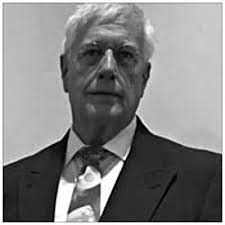
A VET’S NARRATIVE ON SURVIVING THE “SILLY SEASON”
by Gordon Duff STAFF WRITER/Senior Editor
For some veterans of our current war, this will be their first holiday home from a combat assignment. For others, Christmas has been spent both home and away, sometimes more than once. In our history, this is a unique situation. We have never had a war before where military families live a “yo yo” existence, sometimes with one or both members of a family serving overseas. This is certainly our first war where mothers with children are spending so much time away from their families.
For vets subject to combat stresses, now called PTSD, the holiday season can be especially bad. We have vets from our current wars, some recovering (and not) from severe wounds, joining tens of thousands of vets from earlier wars that spread into the first half of the last century. Never have so many people of different ages and sexes shared a common homefront enemy, “Combat Vet Holiday Blues”…
I grew up on stories of Christmas during the depression from my mother and earlier times from my father who grew up before the First World War. Both had lived in poverty, my mother in a mining camp in Kentucky and my father in Detroit. Both came from large families that fell on hard times.
The America they described was one of people with very little, working together to survive problems like food, heat and shelter. My mother talked about how only “some” of the kids would get shoes for Christmas each year and of the hobos they would feed, sharing the little they had for themselves. My father spoke often of his “criminal forrays” into the wealthier neighborhoods when he, at seven or eight, would steal a turkey or a bag of potatoes off a porch so his family could eat.
A favorite story was of getting a 5 gallon keg of maple syrup off a wagon and rolling it home. Until his death, he refused to touch maple syrup.
I grew up in the 50’s with parents who valued Christmas more than anything because they “thought” they had so little. Though hard times had made them miserly and fearful in a country obsessed with “duck and cover” nuclear fears and the endless “layoffs” that plagued the auto industry in Detroit, I had a pretty easy time of it. Even holidays spent as a Marine in Vietnam had a feeling of “family”. This was my initiation into what my parents had grown up with.
For vets, assuming that surviving war just because you make it home, seemingly safe and whole, or not so whole, can be deceptive. HOLIDAYS HAVE ALWAYS BEEN A TIME FOR SUICIDES. FOR VETS, ESPECIALLY COMBAT VETS WITH PTSD, HOLIDAYS CAN BE A NIGHTMARE.
We clearly live in changed times when, for many, community, family and friends are not likely to be there. We live in a time when war can go on without anyone really knowing or caring. To earlier generations, that would seem unthinkable. Now war is little more than a weekly casualty report and whining about “spending”. Vietnam did that to us. We now live in a society ready to be at war forever as long as it doesn’t interfere with business as usual.
Today we are less likely to turn to our friends and family and more likely to depend on credit card companies to get us thru hard times. We really don’t see hard times anymore. It isn’t that they aren’t there but we just don’t see them. The “things” we have, the things we can buy fool us into thinking that we have what we need to survive.
Our closets are full, most of us can eat pretty much anything we want and even some of us can still afford to drive cars, though that may be coming to an end. We still have millions in this country who shop at second hand stores and receive public assistance. We have millions more who work jobs, sometimes more than one, and struggle to buy food or keep a car running and insured. We see them, some of us may be them, but probably not. Our “invisible poor” don’t often have internet access nor do they read the New York Times or Washington Post.
Alot of military families, families of returning vets and some vets of earlier wars fall into this “invisible” category. WE ARE NOW TOLD THAT ONE THIRD OF THE HOMELESS IN AMERICA ARE VETERANS. THIS IS YEARS AFTER THE VA STARTED “OUTREACH” PROGRAMS THAT SEEMED TO FADE AWAY WITH BUDGET CUTS.
One of the things that makes Christmas so dangerous is that we build our expectations as children while we are still open to feelings of wonder and optimism. Children, lucky children at least, grow up remembering Santa and decorations and toys. Lucky kids grew up in families where, for the most part, the holidays were a very special time when adults focused on family and giving. For other families, this was the only time of the year when there was a feeling of family.
Growing up teaches us lessons. Going shopping the day after Thanksgiving can make a combat patrol seem like a vacation. For those who think I am overstating this, I assure you, if anything I am understating this. Christmas can seem like a dark time of heartless greed, pushing and shoving and thankless hypocrisy. We all see signs of this. Some of us learn to laugh it off. FOR OTHERS, ESPECIALLY PTSD VETS, MILITARY FAMILIES STRUGGLING TO MAKE ENDS MEET OR OR HOMELESS VETS, THERE IS LITTLE HUMOR IN WHAT OUR FORGETFUL AND MATERIALISTIC CULTURE HAS DONE TO THE HOLIDAY SEASON.
Christmas for many, has become a yearly set of disappointments, when expectations and remembrances of times past are placed out of reach, seemingly forever. To oversimplify, we build a trap for ourselves out of expectations. We all learned to idealize Christmas as children. For those of us lucky enough to have small children and the resources and mental acuity necessary to create a great holiday for them, Christmas can still be special. Seeing Christmas thru the eyes of a child, watching them open their gifts or wonder at a department store Santa can keep our own childhood dreams alive.
Older vets know that children grow up and those time are gone. For some, grand children may fill the void but, in reality life is not a movie and not all endings are happy. Looking for joy seems to, almost, assure it being out of reach, it seems.
Building a “survivable” holiday requires realistic planning and an understanding of who we are, ourselves. Psychiatrists, one of the few groups who experience suicide rates comparable with PTSD vets, can and will tell us that building up expectations based on unrealistic ideals is dangerous. Their answer, of course, generally involves a pharmacy. For those vets who are on meds, the holidays are not a time to slack off. If meds are working, keep taking them. If they are not, make the call and get them checked.
Finding good things among the bad is key, even if the good seems little and the bad overwhelming. Our best memories are sometimes of things both small and unexpected. We forget this. Our over-commercialized world beats us to death with the idea that all happiness comes from owning a new Lexus and buying diamonds. Cleaning this and the dozens of other lies we carry with us out of our heads might just be an answer.
If each of us is saner and more human, even if we are the only ones, it is a start. In truth, vets are the inheritors of the hard times that taught earlier generations the values we believe are lost and gone.
Turning off the “noise” around us, looking inside ourselves and finding our strength and individuality, our real value, is we all must do. Trying to live “their life” in “their world” will doom any vet. Those who “aren’t” will never know. Those who know will never be able to explain it to “them”. Accepting this is vital.
Too long, military families and vets have been made to feel like victims, especially during the holidays. For all but the most senior NCOs and Officers, having “less” can make anyone feel like an outcast. “Their” America is built like that. Ours is not! Combat vets will always have “dark days”, especially around the holidays. PTSD, even if misdiagnosed by the Army or VA as a “personality disorder” or “pre-existing condition” often pushes vets into a spiral of depression or worse during and after the holidays.
Knowing what to look for and building holidays in our hearts and not the dreams of others is a plan to stick with. Make it work for you.
 GORDON DUFF IS A MARINE VIETNAM VETERAN AND REGULAR CONTRIBUTOR ON POLITICAL AND SOCIAL ISSUES.
GORDON DUFF IS A MARINE VIETNAM VETERAN AND REGULAR CONTRIBUTOR ON POLITICAL AND SOCIAL ISSUES.

Gordon Duff posted articles on VT from 2008 to 2022. He is a Marine combat veteran of the Vietnam War. A disabled veteran, he worked on veterans and POW issues for decades.
Gordon is an accredited diplomat and is generally accepted as one of the top global intelligence specialists. He manages the world’s largest private intelligence organization and regularly consults with governments challenged by security issues.
Duff has traveled extensively, is published around the world, and is a regular guest on TV and radio in more than “several” countries. He is also a trained chef, wine enthusiast, avid motorcyclist, and gunsmith specializing in historical weapons and restoration. Business experience and interests are in energy and defense technology.
ATTENTION READERS
We See The World From All Sides and Want YOU To Be Fully InformedIn fact, intentional disinformation is a disgraceful scourge in media today. So to assuage any possible errant incorrect information posted herein, we strongly encourage you to seek corroboration from other non-VT sources before forming an educated opinion.
About VT - Policies & Disclosures - Comment Policy



